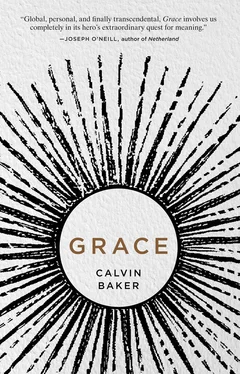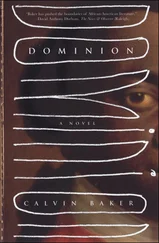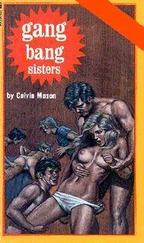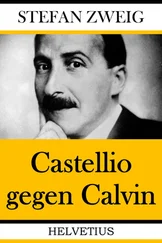I watched the crowd schmooze, front, hustle, and ordered another cocktail, and took a hit from a blunt someone was nice enough to share as I waited, watching as the reality in the room bent with the force of raw ego and condensed desire in so small a space. My part in it was done. Everything belonged to the machine now, and I did my best to not worry about what came next, and simply enjoy the night.
Our party was upstairs on a balcony, affording us a clear view to the stage below, where last year’s pop superstar was making an unannounced appearance to test out the first single from his comeback album, which would be heard all around the world come summer. It was good and catchy the first time you heard it, and still hooked you the hundredth time. But by then you wanted the damn thing out of your head, which is why the machine was busy, even as they listened to it the first time, working up next year’s novelty the people did not yet know they wanted.
The tables at the foot of the stage were filled with business people from another party, still in their suits, and their lawyers, still in their ties, ordering bottle service; all wired on coke. They were powerful and connected enough to be in the club, but removed enough from the industry that they served as the first marks, who would start the buzz humming in the next circle out, until the energy from the room rippled across the country, like wavelets across a fishing pond. It would no longer be about the music by the next morning, but an economic reality of mass experience. To be in the club that night was to witness its magical transformation from private art to public culture. And, slip of time, its first step toward the reliquary of the past.
When the superstar left, the crowd was cresting with energy as the next performer, a midget Marilyn Monroe impersonator, took the stage. She did not imitate Marilyn exactly, but gave a pitch-perfect burlesque of the last golden idol to get her ticket punched that way. Unlike the ingénue she impersonated, she could actually sing. Raised-in-church-papa-was-a-traveling-preacher-mamma-used-to-cry-holy-all-the-damn-time-sing. When the black girls in the audience said That girl can sing , they didn’t qualify it with white girl .
She sang like there was something inside her she was on fire to tell, cutting clean through the derivative cunning, the manufactured desire, the Warholian wannabes before her, who had nothing to add but rode the latest trend until it ran out. Hers was a further station, and she knew it, as she tapped at the twin roots of desire and yearning. When I looked her up later there were no recordings from any of her performances, and when I reflected on it, that seemed right too. She sang like she had been here before, and it was the purity and depth she made you aware of in a single, exquisite moment that made you think maybe you had, too.
If she were four inches taller she would have been on every screen in the country. But who knows what the tradeoff would have been? She was not four inches taller, though, and did not get what came with that, but she had that voice. And she had that wanton, unbridled fire; and the people on the screens, and the people who decided what went on them, were watching her with awe and desire and joy that filled them completely and wanted for nothing else, as she made them know what they had come here for, if only for a vanishing moment.
She wore a skintight red leather bodice to complete or complicate the effect, her ass fat and fertile as a harvest moon, so the suits downstairs, who were ginned up, and everyone upstairs, all weeded out, could do nothing but fall under her spell. Downstairs it was to screw her, because she was hot, or because they were freaks and it was something different. She knew that about them, of course; you heard it in her voice when she sang, saw it in the thrust of her hips. She knew everything there was to know. She had been here before. And she teased the crowd, promising any minute now to come down from the stage and fuck us all. If she ever got half a chance she would fuck the whole world.
She never would get her big break, the world is unfair; you suffer that and do not complain. But we were fortunate to be in the room and hear her. Those who were not and knew only what had been put before them by those who did not create, lost out on the chance to know how beauty can overtake you unexpectedly. That is how this world works. It does not give you what you deserve. It gives you part of what you work for, and halfway what you want. Beyond that it gives to you randomly some part of goodness, and all you can take of pain. That is what it was like for her too: somewhere in between. She was still blessed with that sanctified voice, though, and that irreligious fire she copped for herself.
When the set ended I noticed my friend Nell sitting with an animated group at one of the tables, and made my way over. Their laughter was light in the darkness, radiating fellowship, and, as I sat down, a tall, winsome girl in a halter and shorts that showed the long line of her perfect legs saw me notice her, and we traded smiles.
“Oh, you need to friend her up,” Nell said, catching the exchange, as we cheek kissed. “Come on, I’ll introduce you.”
“Do you know her?”
“I will in a second.”
Nell was already in motion, homing in on the other edge of the sofa, where she struck up a conversation. Nell was like the pope’s confessor, people divulged their secrets to her in order to protect larger secrets, until she was one of the few people who knew how the city — and the people who ran it — truly operated, and could draw the hidden, unlikely connections between all its self-contained worlds. Whether through charm or guile or toughness, she was impossible to resist.
“Fats,” she exclaimed, when she had penetrated to the center of the group. At the far corner of the sofa, sitting like a pharaoh, was Clinton Stone, a record producer, who had once been a musician, then president of a label, where he invented a whole new sound. It had made his stars famous, and given him what stars never get to possess, which is power. Nor did he get it by mistake. He knew what a throne was for, and when the suits finally examined the books and realized they had put an artist in charge of the business, it was too late. By the time they separated him from his chair he no longer needed it.
In the years since, he had become impresario to half the town. He knew all the gods, and all the demigods, and all the beautiful, young ones who burned to be gods and demigods. He could tell at a glance who had it to make it, and who did not. Those who had it, he taught to manage it. Those who did not, he taught how to manage that too, until he had aided so many people on their paths he was known around town as Yoda — though never to his face. He was sensitive about his looks.
Nell introduced us, and he asked what I did. I told him I had written the film with Davidson, and he nodded his approval. “He used to sleep on my sofa in Alphabet City, back when we were young and New York was cool. What are you doing next?”
Most conversations about work in the city were a side-winding way to talk about money, but Yoda had the supernal curiosity of the brilliant, and was as fascinated as a child new to the world, which drew me out, until I had told him everything about my worries, and after that how I’d quit my old life.
He nodded inscrutably, asking what had led me to quit, which was simply that I had learned there was nothing unique about suffering, and nothing I could do to stop it, and nothing more I had to say about it. I had asked myself how my life connected to all those others, and the theoretical questions evaporated, and the truth was too much to speak, until I was back at the place I’d started, which was simply: who are you and what do you know?
Читать дальше












